ROUGH SET SCHOOL AND TUTORIALS
17 May 2024, Halifax, Nova Scotia, Canada
We are thrilled to invite you to participate in the Rough Set School and Tutorials that will be held on
17 May 2024 in Halifax, Nova Scotia, Canada. This event, part of the IJCRS 2024 International
Joint conference, is tailored for those embarking on their journey with rough set techniques.
The Rough Set School and Tutorials, set against the backdrop of the ongoing industrial
transformation steered by Artificial Intelligence advancements, aims to introduce the significance of
rough set techniques in AI methodologies. Developed by Professor Zdzisław Pawlak, the Rough Set
Theory has been instrumental in areas such as data analysis, decision support systems, and
knowledge discovery. The school offers a supportive international setting for newcomers to the
field, providing a comprehensive introduction to the foundational theory, applications, and
associated algorithms of rough sets.
General Information
The Rough Set School and Tutorials is open to all who are keen to explore the broad field of AI,
data analysis, and rough set techniques. We especially encourage those at the beginning of their
research or professional projects to apply, as the school is designed to provide foundational
knowledge and insights.
Every participant will receive a certificate prepared in cooperation with the International Rough Set
Society (IRSS).
Program
The Rough Set School and Tutorials is hosted in Saint Mary's University, Halifax, Nova Scotia,
Canada. The primary form of engagement will be:
Rough Set School: The school covers a stream of lectures related to the theory and applications of
rough set methods. It will be designed to provide graduate students and industry practitioners with
basic understanding of what the rough sets are and how rough set methods and software associated
with rough set techniques can be utilized.
Tutorials: These sessions will delve deep into the theory, and applications of artificial intelligence,
data mining and uncertainty modelling, ensuring participants gain a holistic understanding of the
subject.
Click for detailed program.
TUTORIALS DETAILS
Title: Rough Sets: History and what next
Speakers: Dr.Andrzej Skowron, Dr.Dominik Ślęzak
Slides
Abstract. In this tutorial, we present an outline of the rich history of rough sets, tracing its origins back to the
pioneering model introduced by Professor Zdzisław Pawlak. From there, we explore various generalizations
of this model, showcasing how they have evolved to offer high-quality solutions to real-life challenges across
diverse domains. Additionally, we delve into the promising future of rough sets within the realm of interactive
granular computations, illuminating the potential for further advancements and applications in this dynamic
field.
Title: Fuzzy orthopartitions as models dealing with vague and uncertain information
Speaker: Dr.Stefania Boffa
Slides
Title: Near Sets with Application on Hilbert Envelope Proximities in Modulated Irregular Motion
Waveforms in Infrared Video Frames
Speaker: Dr.James Peters
Dedicated to S.V. Banavar and Z. Pawlak
Abstract. This paper reflects recent work on motion analysis in video frames [1] and introduces
various forms to near (proximal) Hilbert envelope lobes used to measure signal energy of regions
commonly found in nonlinear vibrating systems [3] with output signals that are oscillating spectral
curves. The time varying amplitudes and peak-value frequencies typical in IR spectral curves reflect
the response of a system to external stimuli. The Hilbert transform Henv(x(t)) is used to construct an
upper and lower envelop from a time-domain signal x(t) [2]. A Hilbert envelope is a smooth curve
connected between spectral curve peak values. Each peak value of a spectral curve x(t) on an
envelope curve x at time t identifies an envelope-bounded region with interior area (called Hilbert
envelope energy region (denoted by Eenvx)), which provides a measure of the size of a system
response to a timevarying stimulus [4]. In other words, a Hilbert envelope provides a ’fingerprint’ of
the spectral flow of an oscillating waveform x(t), since an envelope is tangent to every maximal
value of the waveform. This paper includes an application near sets on Hilbert energy envelope
regions in tracking
the self-similarities of the Hilbert energy regions, providing a measure of the irregularities of either
walker or runner motion recorded in infrared videos.
Title: The art, science, and application of three-way decision
Speaker: Dr.Yiyu Yao
Slides
Abstract. A theory of three-way decision concerns thinking in threes, problem solving in threes,
and computing in threes. This tutorial will cover the art, science, and applications of three-way
decision. There are three parts of the tutorial: (1) rough set theory and the narrow sense of three-
way decision, (2) the wide sense and the Dao of three-way decision, and (3) applications of three-
way decision.
Title: Rough Set Theory in AI and Data Science
Speaker: Dr.Usman Qamar
Abstract. “More than forty years ago, Professor Zdzisław Pawlak introduced the Rough Set Theory
(RST) for data analysis and knowledge exploration. Today RST is one of the leading paradigms in
Data Science and Artificial Intelligence, with a wide range of applications. In the domain of Data
Science RST is being used for data mining, knowledge discovery, decision support systems, expert
systems, cognitive systems, and autonomous systems. RST is also being used extensively for RST
decision rules for explanatory models for AI. This session will cover how RST is becoming such a
pivotal part of AI and Data Science.”
Title: QMAK (open platform for interaction with machine learning models and visualization of classification processes)
Speaker: Dr.Arkadiusz Wojna
Link to QMAK
|
Stefania Boffa
University of Milano-Bicocca, Italy
Bio:
Stefania Boffa received her bachelor's and master's degrees with laude in Mathematics from the University of Salerno, Italy. She got a PhD in Computer Science and Mathematics of Computation in 2018 at the University of Insubria, Italy. She worked on solving the OP RDE project as a post-doctoral researcher at the Institute for Research and Applications of Fuzzy Modeling (IRAFM), Ostrava, Czech Republic.
|
|

|
James Peters
Department of Electrical & Computer Engineering, University of Manitoba, Winnipeg, Canada
Bio: James F. Peters, B.Sc. (Math), M.Sc.(Math), Ph.D. (Proof Theory),
Postdoctoral Fellow, Syracuse University and Researcher in the Rome AI
Laboratory, Griffiss Air Force Base, New York (1991), Asst. Prof., University of
Arkansas, 1991-1994, and Researcher in the Mission Sequencing and Deep
Space Telecommunications Divisions at the Jet Propulsion Laboratory/Caltech,
Pasadena, California (1991-1994), Full Professor, ECE Department, University
of Manitoba, 1995-present. He also serves as Professor in the Department of
Mathematics at Adiyaman University, Turkey. His main research interests are
signal waveforms, topology and proximity spaces in the mathematics of near
sets with applications in Computer Vision.
He is co-Editor with S. Pal, Indian Statistical Institute, Kolkata, India, Rough Fuzzy Image Analysis: Foundations and Methodologies, published in 2010 by Chapman & Hall/CRC Press. In addition, he is coedited with E. Orlowska, G. Rozenberg, A. Skowron, New Frontiers in Scientific Discovery Commemorating the Life and Work of Zdzislaw Pawlak, published in 2007 by IOS Press. He has co-authored over 100 articles published in refereed journals during the past 5 years. He served as the co-Founding Editor and co-Editor-in-Chief [with Andrzej Skowron], Springer Transactions on Rough Sets. A complete list of his publications can be found on ResearchGate https://www.researchgate.net/profile/James-Peters-3 Recognitions: |
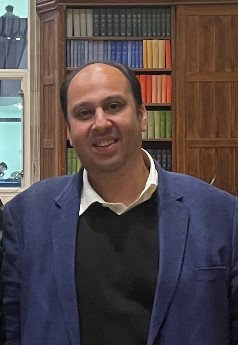
|
Usman Qamar
National University of Sciences and Technology, Pakistan Bio: Usman Qamar has over 15 years of experience in data science both in academia & industry. He has a Master's from UMIST, UK and his MPhil and PhD are from University of Manchester, UK. He is currently a Tenured Professor of Data Science at the National University of Sciences and Technology, Pakistan and director of the Knowledge and Data Science Research Centre. He has authored over 200 peer-reviewed publications and 5 books with Springer which includes 2 books on Rough Set Theory and 3 textbooks. His textbook titled "Data Science Concepts and Techniques with Applications" was awarded the top publications for the United Nations Sustainable Development Goal, SDG4: Quality Education. Whereas his textbook "Applied Text Mining", covers the concepts, theories, and implementations of text mining and natural language processing. He is the Editor-in-Chief of the journal, Informatics in Medicine Unlocked as well as Associate Editor of Information Sciences, Applied Soft Computing, Engineering Applications of Artificial Intelligence and Applied Intelligence. |
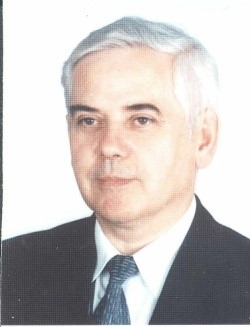
|
Andrzej Skowron
Systems Research Institute of Polish Academy of Sciences Bio: Andrzej Skowron, ECCAI (EurAI), AAIA and IRSS Fellow, Member of Academia Europaea (MAE), Member EU Academy of Sciences, Web Intelligence Academy founding Fellow (WIA), Advisory Board member of Web Intelligence Consortium, received the Ph. D. and D. Sci. (habilitation) from the University of Warsaw in Poland. In 1991 he received the Scientific Title of Professor. He is Full Professor in the Systems Research Institute, Polish Academy of Sciences. He is Emeritus Professor in Faculty of Mathematics, Computer Science and Mechanics at the University of Warsaw. Andrzej Skowron is the (co)author of more than 400 scientific publications and editor of many books, special issues of journals and volumes of conference proceedings. His areas of expertise include reasoning with incomplete information, approximate reasoning, soft computing methods and applications, rough sets, rough mereology, (interactive) granular computing, intelligent systems, (adaptive) complex systems, perception based computing, machine learning. He was the supervisor of 22 PhD Theses. In the period 1995-2009 he was the Editor- in-Chief of Fundamenta Informaticae journal. He is on Editorial Boards of many others international journals. Andrzej Skowron was the President of the International Rough Set Society (1996-2000). He has delivered numerous invited talks at international conferences including a plenary talk at the 16th IFIP World Computer Congress (Beijing, 2000), a keynote talk at the 8th Joint Conference on Information Sciences (JCIS 2005) (encompassing 12 individual conferences and workshops) (USA, 2005), an invited talk at the 2006 IEEE/WIC/ACM International Conference on Intelligent Agent Technology (IAT 2006) and on Web Intelligence (WI 2006) (Hong Kong, 2006),and a plenary talk at the 2nd World Congress on Biologically Inspired Computing (Japan, 2010). He was serving as (co- )program chair or PC member of more than 200 international conferences. He was involved in numerous research and commercial projects including dialog-based search engine (Nutech), fraud detection for Bank of America (Nutech), logistic project for General Motors (Nutech), algorithmic trading (Adgam), control of UAV (Linköping University), and medical decision support (e.g., in Polish-American Pediatric Clinic in Cracow). Andrzej Skowron was on the ICI Thomson Reuters/ Clarivate Analytics lists of the most cited researchers in Computer Science (globally) in 2012, 2016, 2017. H-index=66 (Google Scholar). |
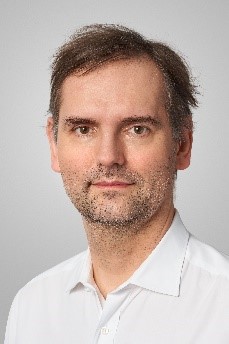
|
Dominik Ślęzak
QED Software, Poland
Bio: Dominik Ślęzak received Ph.D. in Computer Science in 2002 from
University of Warsaw in Poland. In his early academic career, he worked at
Polish-Japanese Academy of Information Technology. In 2003-2006, he
worked as Assistant Professor at University of Regina in Canada. He cooperated also with McMaster University and York University. In 2008,
he re-joined University of Warsaw where he now holds position of Full
Professor at Institute of Informatics. He is co-author of over 200 papers in
the fields of Data Mining, Databases, Intelligent Systems and Rough Sets.
He delivered plenary talks at over 20 conferences. In 2020, he was
awarded with scientific title of Professor by President of the Republic of
Poland.
|
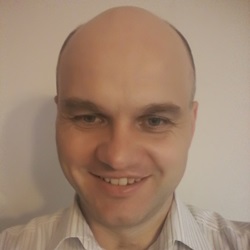
|
Arkadiusz Wojna
Software development architect at DeepSeas Bio: Arkadiusz Wojna received the PhD from University of Warsaw in Poland. He is software development architect at DeepSeas. His interests include artificial intelligence, data mining, explainable machine learning, classification visualization, dialog-based decision systems and interactive classifiers. He was involved in various scientific and commercial projects including: Rough Set Exploration System (Warsaw University), the open source rough set and machine learning library Rseslib 3 (Warsaw University), the platform QMAK for interaction with machine learning models and visualization of classification process (Warsaw University), dialog-based search engine Excavio (Nutech), fraud detection for Bank of America (project Merix, Nutech), algorithmic trading (system InMan, Adgam), knowledge grid based data warehouse for analytics (Infobright) and approximate query engine for cybersecurity (Security On-Demand and DeepSeas). He served as PC member of several conferences on rough sets and artificial intelligence. He is co-author of five patents in United States. |
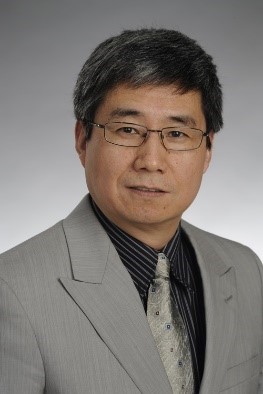
|
Yiyu Yao
Department of Computer Science, University of Regina, Canada
Bio: Yiyu Yao is a professor of computer science with the Department of
Computer Science, University of Regina, Canada. His research interests
include three-way decision, granular computing, Web intelligence, rough
sets, fuzzy sets, interval sets, formal concept analysis, information
retrieval, machine learning, and data mining. He proposed a theory of
three-way decision, a decision-theoretic rough set model, and a triarchic
theory of granular computing. He has published over 400 papers. He
was selected as a highly cited researcher by Clarivate from 2015 to 2019.
He is the President of Web Intelligence Academy.
|
Registration Fee
Registration for the Rough Set School and Tutorials is free of charge! Online participation is also possible and is at no cost. However, registration is mandatory. Those who have registered for IJCRS2024 are eligible to attend the Rough Set School and Tutorials.
The registration link is: https://www.eventbrite.ca/e/international-joint-conference-on-rough-sets-2024-tickets-840561290447
CONTACT
For questions related to the participation to the Rough Set School and Tutorials, please write to: ijcrs24@cs.smu.ca
Rough Set School and Tutorial Chair